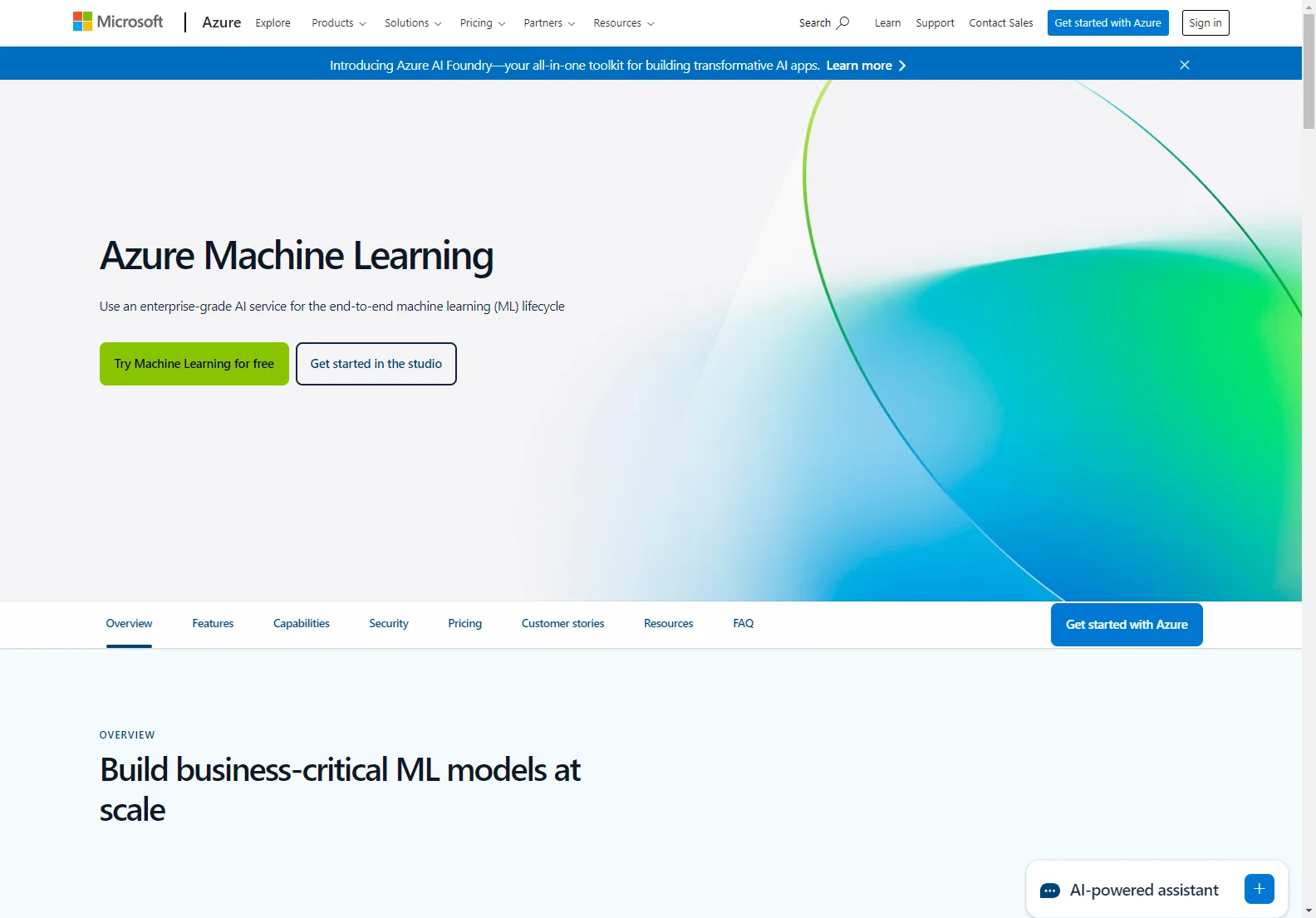Azure Machine Learning: A Comprehensive Guide
Azure Machine Learning is a cloud-based platform offered by Microsoft Azure that provides a comprehensive set of tools and services for building, training, deploying, and managing machine learning (ML) models. It caters to various skill levels, from beginners to experienced data scientists, offering a scalable and efficient environment for AI development.
Key Features of Azure Machine Learning
- Automated Machine Learning (AutoML): AutoML simplifies the process of building ML models by automating tasks like feature engineering, model selection, and hyperparameter tuning. This allows users with limited ML expertise to create high-performing models.
- Model Building and Training: Azure Machine Learning supports various programming languages (Python, R) and frameworks (TensorFlow, PyTorch, scikit-learn) for building custom ML models. It provides scalable compute resources for training models on large datasets.
- Model Deployment and Management: Deploy trained models as REST APIs, real-time endpoints, or batch processing jobs. The platform also offers tools for monitoring model performance and managing model versions.
- MLOps Integration: Azure Machine Learning integrates with MLOps tools and practices to streamline the ML lifecycle, ensuring reproducibility, collaboration, and efficient model deployment.
- Data Integration and Preparation: Seamlessly integrate with various data sources (Azure Data Lake Storage, Azure SQL Database, etc.) and utilize built-in tools for data cleaning, transformation, and feature engineering.
- Responsible AI: Azure Machine Learning incorporates features to promote responsible AI development, including tools for bias detection and mitigation.
Use Cases for Azure Machine Learning
Azure Machine Learning finds applications across various industries and domains, including:
- Predictive Maintenance: Predict equipment failures and optimize maintenance schedules.
- Fraud Detection: Identify fraudulent transactions in real-time.
- Customer Churn Prediction: Predict customer churn and implement retention strategies.
- Recommendation Systems: Build personalized recommendation systems for e-commerce and entertainment.
- Image Recognition: Develop image recognition models for various applications, such as medical imaging and object detection.
Pricing and Scalability
Azure Machine Learning offers flexible pricing models, allowing users to pay only for the resources they consume. The platform scales easily to handle large datasets and complex models, making it suitable for both small-scale projects and enterprise-level deployments.
Comparisons with Other Platforms
Compared to other cloud-based ML platforms like AWS SageMaker and Google Cloud AI Platform, Azure Machine Learning offers a strong combination of ease of use, scalability, and integration with other Azure services. Its AutoML capabilities make it particularly accessible to users with limited ML expertise, while its robust MLOps features cater to advanced users.
Conclusion
Azure Machine Learning is a powerful and versatile platform for building and deploying ML models. Its comprehensive features, scalability, and integration with other Azure services make it a strong choice for organizations of all sizes looking to leverage the power of AI.
